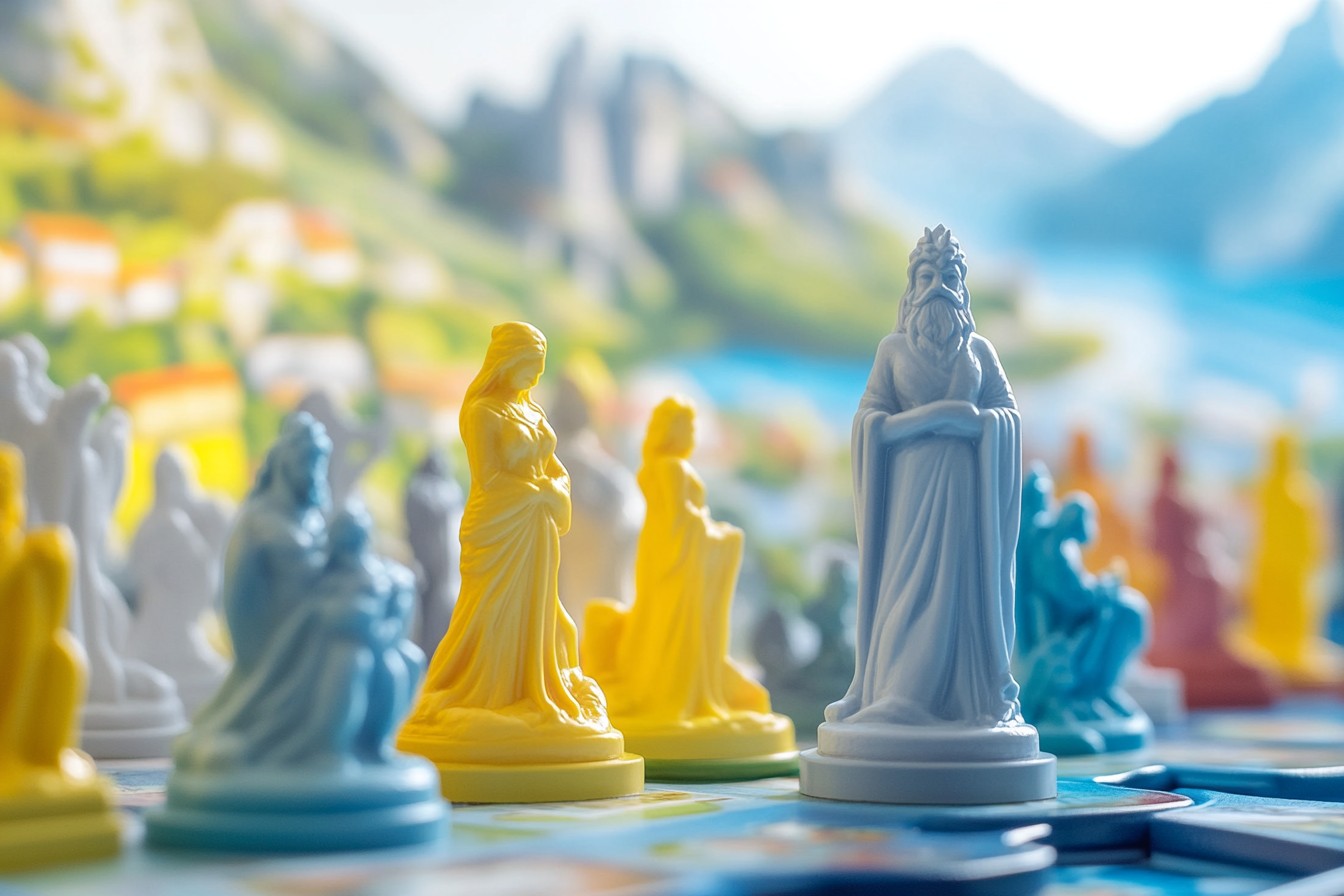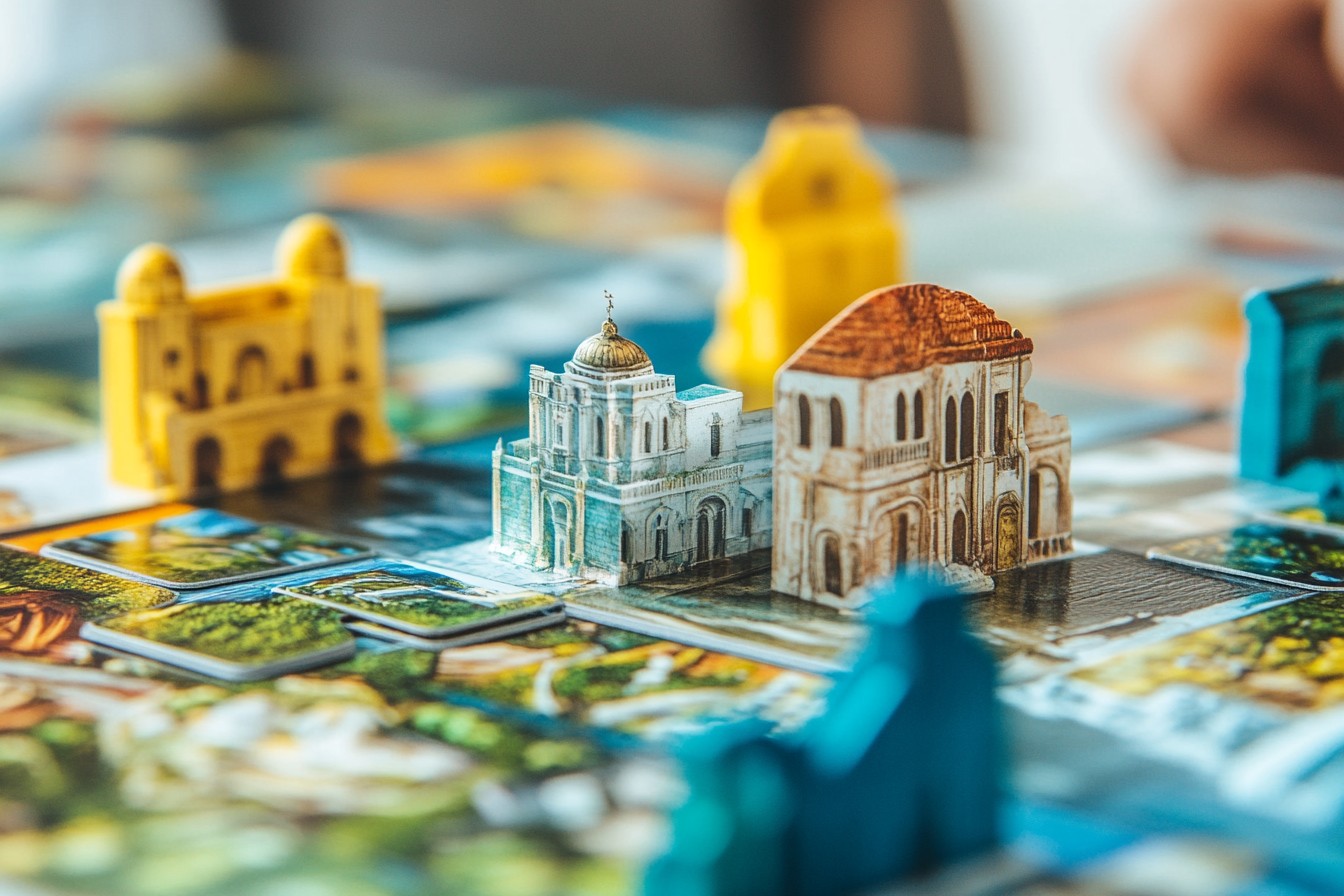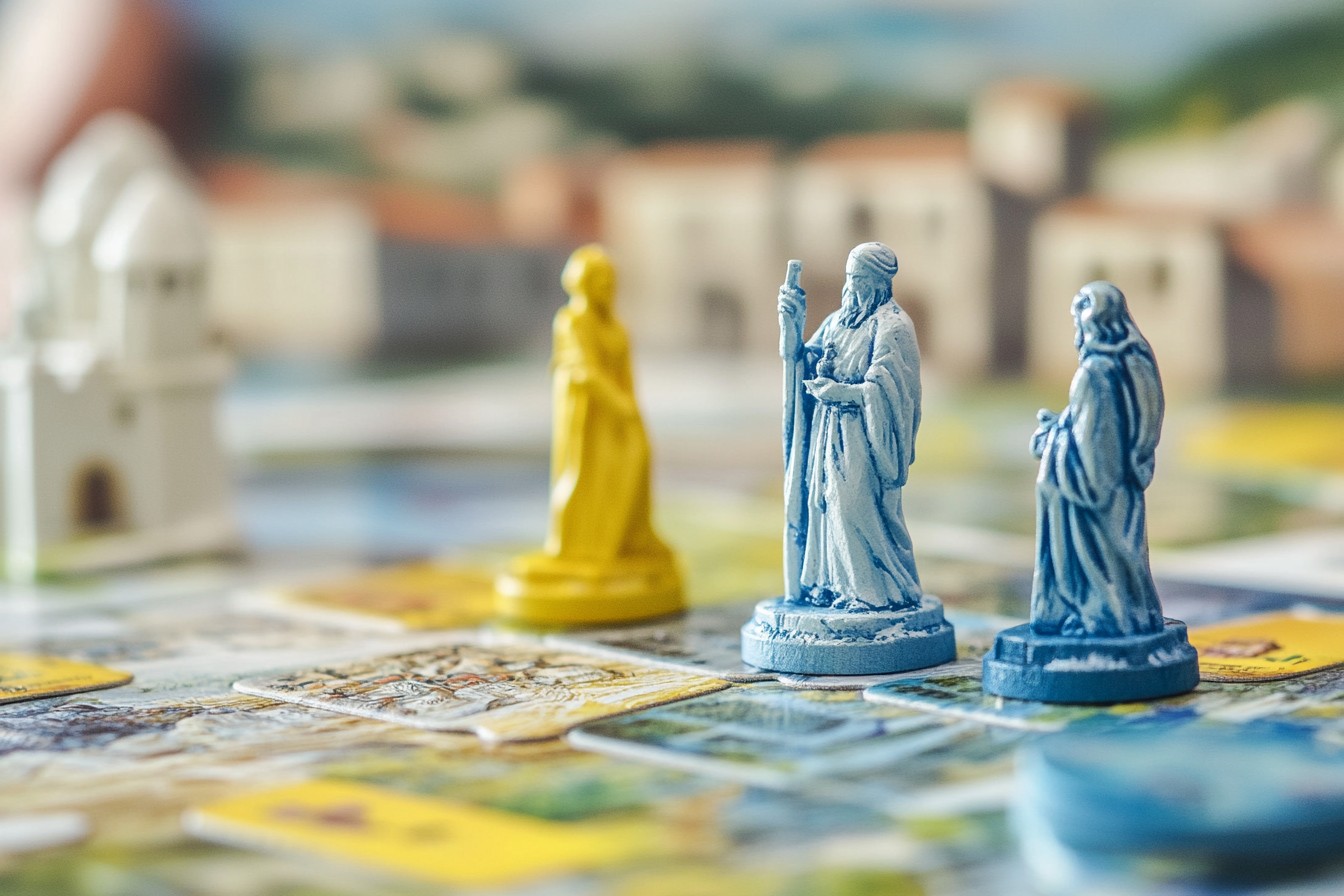The first time I truly understood the strategic depth of Santorini’s god power selection was during a weekend gaming retreat in northern Minnesota back in 2017. Eight of us had gathered at a lakeside cabin, and Santorini had just hit the table for what would become a 14-hour marathon of divine architecture. In our third game, I’d selected Apollo (who can swap positions with opponent builders) against Linda’s Athena (who prevents opponents from moving upward after she does). What followed was a brutal positional battle where her movement restriction neutralized half my strategic options, while my swapping ability constantly threatened her carefully constructed positions. After my narrow defeat, I realized we weren’t just playing Santorini—we were playing a fascinating meta-game where our god power selections were creating entirely different strategic landscapes before the first block was even placed.
After 150+ games of Santorini (yes, I’ve kept count—Josh calls it my “divine spreadsheet”), I’ve developed what I call “theological matchup analysis”—a systematic approach to god power selection that considers player count, opponent experience, and counter-strategy potential. The core insight that transformed my approach was recognizing that in Santorini, god selection isn’t just about picking powers you enjoy—it’s about creating strategic asymmetries that you can navigate better than your opponents.
Let me break this down with some practical examples from our regular game sessions.
First, let’s talk about what I call “power complexity alignment.” Many players select god powers based solely on perceived strength, without considering how the power’s complexity aligns with their own strategic abilities. This creates a dangerous mismatch where players wielding complex powers frequently underperform because they haven’t fully internalized all the strategic implications.
Instead, I recommend honestly assessing your own experience level and selecting powers with appropriate complexity. Beginner players should start with straightforward powers like Apollo or Artemis that provide clear, consistent advantages. Intermediate players can handle conditional powers like Athena or Hephaestus that require more situational awareness. And only experienced players should tackle the highly complex gods like Chronus or Prometheus whose advantages require intricate strategic planning to maximize.
During a family game night last Christmas, I watched this principle play out when my nephew—an otherwise brilliant 14-year-old with minimal Santorini experience—insisted on playing as Chronus (who wins by having five complete towers). He spent the entire game hyper-focusing on building towers while completely neglecting the defensive positioning that Chronus requires. My son Josh, playing as simple but effective Apollo, easily maneuvered for the traditional win while my nephew’s towers remained undefended. The complexity mismatch overwhelmed his strategic capacity.
Temperature in the room affects god selection decisions—I’m not making this up! During summer game sessions, I’ve observed players gravitate toward more aggressive, direct-conflict powers like Ares and Bia. In winter sessions, they tend to prefer defensive or building-oriented powers like Demeter and Hestia. Maybe it’s the psychological impact of seasonal energy levels? Whatever the reason, I’ve started factoring this into my counter-picking strategy.
The most powerful selection technique I’ve discovered involves what I call “experiential counter-picking.” Rather than selecting gods based solely on their mechanical interactions, I consider how my opponent’s experience level interacts with specific god powers.
My friend Derek has mastered this approach to a frightening degree. When playing against newcomers, he deliberately selects gods like Pan (who can win by moving down two levels) or Atlas (who can place dome pieces at any level). These powers introduce victory conditions or obstacles that experienced Santorini players intuitively defend against, but that often blindside new players who are focused on the standard win condition. Against experienced opponents, he shifts to more subtle powers like Hermes or Limus that require deep game knowledge to counter effectively.
Player count dramatically changes optimal god selection strategies. The dynamics of two-player Santorini create direct zero-sum contests where counter-picking is paramount. By contrast, three-player games introduce fascinating political dimensions where powers that can influence multiple opponents simultaneously gain tremendous value.
The key insight regarding player count is what Linda calls the “influence radius” principle. In two-player games, powers that directly manipulate your single opponent’s options (like Athena’s upward movement restriction) create straightforward advantages. In three-player games, powers with global effects that constrain both opponents simultaneously (like Hera’s prohibition against winning on the perimeter) generate disproportionate strategic leverage by multiplying their impact.
During a particularly memorable three-player game against Josh and his friend Mark, I employed this principle by selecting Zeus (who can build under himself). While this power seems modest in two-player games, in the three-player context it created a unique immunity to the height restrictions both opponents were trying to enforce on each other. While they fought for control of the central tower, I exploited my ability to build from below, creating an unexpected win condition they both missed until it was too late.
The physical board geography interactions with certain god powers create another fascinating dimension for selection strategy. Powers like Apollo or Minotaur that manipulate builder positions gain tremendous value on crowded boards, while powers like Artemis or Hermes that enhance movement shine on open boards.
My son Josh has developed what he calls the “geographical advantage calculation”—a mental framework for evaluating which powers gain or lose effectiveness based on the likely board development pattern in a specific player count scenario. Two-player games typically develop focused tower clusters, making position-swapping powers stronger. Three-player games generally create more dispersed building patterns, benefiting movement-enhancing powers.
One counterintuitive strategy I’ve found surprisingly effective is what I call “power synergy prediction.” Instead of selecting powers that directly counter my opponent’s god, I sometimes choose powers that create favorable interactions with their likely strategic approach, regardless of their specific power.
In a recent game against Derek, who had selected Atlas (able to place domes at any level), I chose Demeter (able to build twice, but not in the same space) rather than a more obvious counter. While Atlas creates the threat of premature doming, I recognized that countering this would force Derek to play conservatively with his dome placement. Demeter’s double-build ability thrives against conservative opponents, as it creates more building opportunities than they can effectively counter. This indirect strategic counter proved more effective than a direct mechanical counter would have been.
Experience level creates fascinating selection dynamics beyond mere power complexity. Beginner players typically focus on their own power’s potential without fully considering defensive positioning. Intermediate players develop strong defensive awareness but often play reactively. Advanced players achieve a synthesis where they proactively create positions that maximize their power’s advantages while minimizing vulnerability to the opponent’s power.
I’ve tracked outcomes across dozens of games with players of various experience levels, and the data reveals a clear pattern: the win rate for “advanced” offensive powers like Ares or Charron depends far more on player experience difference than on the inherent strength of the powers themselves. These gods typically overperform when used by experienced players against newcomers, but actually underperform when the experience differential is reversed.
Understanding the psychological impact of certain powers adds another layer to selection strategy. Gods like Eros or Dionysus, whose abilities alter standard win conditions, create disproportionate cognitive load for opponents because they force simultaneous attention to multiple victory paths. This cognitive burden often leads to overlooked threats and defensive lapses even from otherwise skilled players.
During a tournament match at a local convention, I witnessed this principle in action when an experienced player selected Eros (who wins if builders are adjacent) against a technically skilled but tournament-inexperienced opponent. While the opponent maintained solid positioning against the traditional win condition, the cognitive overhead of simultaneously defending against the adjacency win condition eventually created a fatal oversight. The fascinating aspect wasn’t that Eros won, but that the victory came through the traditional win condition when the opponent overcommitted to preventing adjacency.
The Golden Fleece expansion, which introduces a neutral god power accessible to either player under specific conditions, creates particularly fascinating selection dynamics. Rather than simply evaluating your power against your opponent’s, you must now consider how both powers interact with this third, contested ability.
I’ve developed a habit of what I call “fleece accessibility mapping” before making Golden Fleece selections. By analyzing how easily my potential god power could gain access to the fleece power compared to my opponent’s likely selections, I can identify combinations where I’d have disproportionate access to what amounts to a second god power.
After years of playing across multiple groups with varying experience levels, I’ve concluded that Santorini is perhaps the most psychologically nuanced abstract strategy game in my collection. The god power selection isn’t merely a mechanical choice—it’s a declaration of strategic intent that shapes the entire psychological landscape of the game that follows.
So the next time you’re selecting your divine patron for a game of Santorini, resist the temptation to simply choose the god you enjoy playing or the one that seems most powerful in isolation. Instead, consider the complex interplay between power mechanics, board geography, player count dynamics, and—perhaps most importantly—the experience level and psychological tendencies of your opponents.
Because in the sun-drenched world of Santorini, the true masters aren’t necessarily those who build the most effectively during the game—they’re the ones who create the most advantageous strategic landscape before the first block is even placed through their sophisticated approach to god power selection.





Leave a Reply